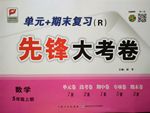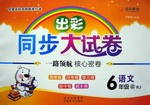题目内容
I rushed into an ugly little shop to have my heels (鞋后跟) repaired. “Please hurry.” I begged.
The shoemaker looked at me over his glasses. “Now, lady, it won’t be long. I want to do a good job. You see, I have a tradition to live up to. My father was a shoemaker. He always told me, ‘Son, do the best job on every shoe that comes into the shop, and be proud of your fine work.’”
As he handed me the finished shoes, he said, “These will last a long time.”
I left the shop with a warm and grateful(感激的) feeling. This was the beginning of our friendship. Since then I went into his shop every few days to talk with him.
One day, I went in, disappointed and angry, because of a poor job some painters had done for me.
“They had no pride in their work.” I said. “They didn’t want to work. They just wanted to collect their money for doing nothing. What can be done about it?”
“There is only one way. Every man or woman who hasn’t a prideful tradition must start building one. No matter what kind of work a man does, if he gives it his best each day, he is starting a tradition for his children to live up to. And he is making lots of happiness for himself. ”
I went to Europe for a few months. When I returned, I learned that the old shoemaker suddenly had got sick two weeks before, right there in his shop. He had died a few days later. I went home with a heavy heart. I would miss him. He had left me something—an important piece of wisdom(至理名言).
I shall always remember: “If you have a prideful tradition, you must carry it on; if you have not, then start building one now.”
56. The old shoemaker thought to do his best in his work each day was to .
A. build a tradition for his children to be proud of
B. start a tradition for himself to live up to
C. make plenty of happiness for himself
D. make lots of happiness for others
57. According to the old shoemaker's opinion, if one didn't do a good job, he .
A. just wanted to collect others' money B. just wanted to do nothing
C. wasn’t proud of his work D. didn’t have a prideful tradition
58. The lady made friends with the old shoemaker because .
A. she had the heels of her shoes repaired by him
B. he did a good job to the heels of her shoes
C. she went into the shop every few days to talk with him
D. he taught her an important piece of wisdom
59. The old shoemaker died .
A. a few months after the lady went to Europe
B. a few days before the lady returned from Europe
C. two weeks before the lady returned from Europe
D. a few days after the lady returned from Europe
CDDB

 单元加期末复习先锋大考卷系列答案
单元加期末复习先锋大考卷系列答案 出彩同步大试卷系列答案
出彩同步大试卷系列答案